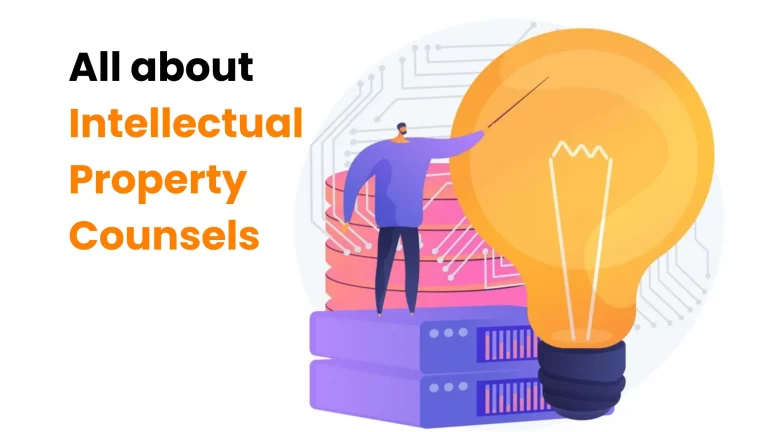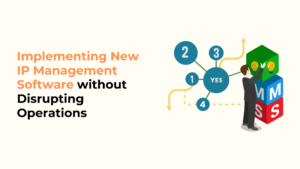Every organization that has resources worth protecting must have an intellectual property counsel.
They may call them IP attorney, internal attorney, in-house counsel, in-house attorney, in-house IP counsel, outside counsel, and so on.
But they all have the same duties to perform and expectations to hold.
What is IP counsel?
They’re the most important link to navigating the complex landscape of intellectual property law, safeguarding business innovations and creative works, and capitalizing on one’s intellectual assets.
Intellectual property counsel provides valuable legal advice, develops tailored strategies to protect intellectual property rights, and advocates for their clients’ interests in legal proceedings and transactions.
Yet this is a quite simple view of the roles and responsibilities of IP counsels.
There’s much more to what’s it like to be the IP counsel for an organization.
Saving costs
Innovation management, right from ideation to implementation, can be a costly affair. Naturally, it falls upon the shoulders of the IP counsels to find the right fit for their company.
Did you know a company ends up spending over $1 million on external counsels and engaging a law firm regularly?
Simple semantics can show you how in-house counsels or in-house teams cut down operational costs drastically. Then, enters savings from their strategic initiatives towards IP protection.
Delivering outputs aligned with the organization’s interests
If we asked you to answer the following questions, how quick and correct would you be in answering them?
- What are your company goals, and how do they scale as your company grows?
- Do you fully understand your company’s technology well?
- How does your company stay relevant in the competitive landscape?
- What do you believe to be important and not important for your business?
You see, it’s the unsaid and unofficial job of the internal counsels to familiarize themselves with and learn about all the questions.
And that’s what enables them to translate the very essence of innovations while disclosing inventions, refining them, and drafting patent applications.
Related Read: Don’t Buy Invention Disclosure Software Until You Review This
They understand where they should put the commercialization efforts and how to guide inventors to capture their inventions well.
Beyond legal guardianship, IP Counsels are strategic advisors. They align IP strategies with overall business goals, contributing to the success and sustainability of organizations in a rapidly evolving marketplace.
Better innovation flow and collaboration
Internal stakeholders are mostly unaware of the importance of IP protection, leaving valuable assets vulnerable to infringement. And the ever-evolving nature of technology makes it difficult to keep pace with emerging threats.
In line with the previous point we made, internal IP counsels are already in touch with the company’s objectives, MVPs, shortcomings, future plans, and so on. At the same time, they are well-versed with every department within the organization, so much so that they work closely with every one of them.
Why?
Because inventors and innovations aren’t restricted to only the R&D department, even though they are in charge of it proactively.
IP counsels ensure a seamless flow of ideas, from inception, development, and evaluation to execution.
Every stakeholder has the right tools, help, and medium.
In the delicate dance between legalities and creativity, IP Counsels are the bridge. They collaborate with innovators, creators, and business leaders, ensuring that legal considerations complement and empower the creative process.
Stopping Idea Theft
According to a survey on idea theft in the workplace by OfficeTeam, Newswire, “Nearly six in 10 employees interviewed said that a coworker has taken credit for their idea.”
Essentially, when employees are asked about idea stealing at work, more than 50% of the people surveyed said yes, they have had their ideas stolen.
And, if you read a survey on knowledge workers by Forbes, you’ll find that one in every three employees has had their ideas stolen at work.
It’s sufficient to assume and declare that idea theft is a common malpractice at work.
IP counsels use strategic intellectual property protection measures and software to spearhead initiatives to educate employees about the importance of intellectual property and the severe consequences of idea theft.
Through dedicated platforms, training sessions, and company-wide communications, they instill a culture of respect for IP rights, empowering employees to safeguard their ideas and report any suspicious activity.
Related Read: People WILL Steal Ideas Until Your Organization Starts Doing This
From secure document management systems to strict access controls, IP counsels ensure that confidential information remains protected from unauthorized access or disclosure.
To incentivize innovation while simultaneously discouraging idea theft, they introduced innovative recognition programs that celebrated employees’ contributions.
Related Read: Why Employees Stop Sharing Ideas? (+ Action Steps to Increase Employee Engagement)
Innovation comes with risks and intellectual property counsels are the armor against such potential threats.
You can be one too. Check out how: https://inspireip.com/sign-up/
Managing International IP Challenges
In an interconnected world, IP knows no borders. IP Counsels are the global ambassadors of innovation, navigating the nuances of international intellectual property laws. They tackle cross-border challenges, ensuring that innovation is not constrained by geographical boundaries.
Taking control of things
Simply knowing the law wasn’t enough to protect the company’s valuable IP assets. Intellectual property counsels must take control.
Determined to safeguard their company’s IP portfolio, counsels implement proactive strategies to mitigate risk and maximize value.
Conducted training sessions for employees at all levels, emphasizing the importance of IP protection and the role each person played in safeguarding company assets is just the starting point.
Next, they prioritize proactive IP management, establishing robust processes for identifying, evaluating, and protecting new innovations.
From the moment an idea is conceived, counsels are there to guide inventors through the entire process.
They also introduce a safe, secure, and compatible idea and innovation management system that takes care of:
- internal, and external stakeholder collaboration on inventions
- invention disclosure with impact
- live repository of ideas
- AI-powered inventor assistance
- quick implementation
- prior-art search for saving time and resources
- quick time-to-value
- integration with the existing stack
- swift system uptake by global employee bases
- innovation challenges
- real-time communication
- attorney collaborations
Last but not the least: End-to-end IP strategy management
At the heart of a company’s success is its carefully crafted intellectual property strategy, masterfully shaped by its IP counsels.
Legal Advice
IP counsels offer legal advice on protecting and managing intellectual property assets such as patents, trademarks, copyrights, and trade secrets. They help the company understand the legal framework surrounding IP and advise on the best strategies for protecting and enforcing their IP rights.
IP Portfolio Management
They assist in the development and management of the company’s IP portfolio. This involves identifying valuable IP assets, assessing their strength and relevance to the company’s business goals, and strategically acquiring, licensing, or disposing of IP rights as needed.
Risk Management
IP counsels help identify potential risks to the company’s IP rights, such as infringement claims or challenges to the validity of patents, and develop strategies to mitigate these risks. They may also advise on avoiding infringing on the IP rights of others.
IP Enforcement
In cases of IP infringement or misappropriation, IP counsels play a key role in enforcing the company’s IP rights. This may involve sending cease and desist letters, initiating legal proceedings, or negotiating settlements with infringers.
Licensing and Transactions
They negotiate and draft IP licensing agreements, technology transfer agreements, and other IP-related contracts to maximize the value of the company’s IP assets through licensing, collaborations, or strategic partnerships.
IP Policy Development
Intellectual property counsels help develop internal policies and procedures related to IP management, including employee training on IP issues, confidentiality agreements, and policies for handling confidential information and trade secrets.
Monitoring IP Trends
They stay abreast of developments in IP law and industry trends to ensure that the company’s IP strategy remains current and aligned with its business objectives.



